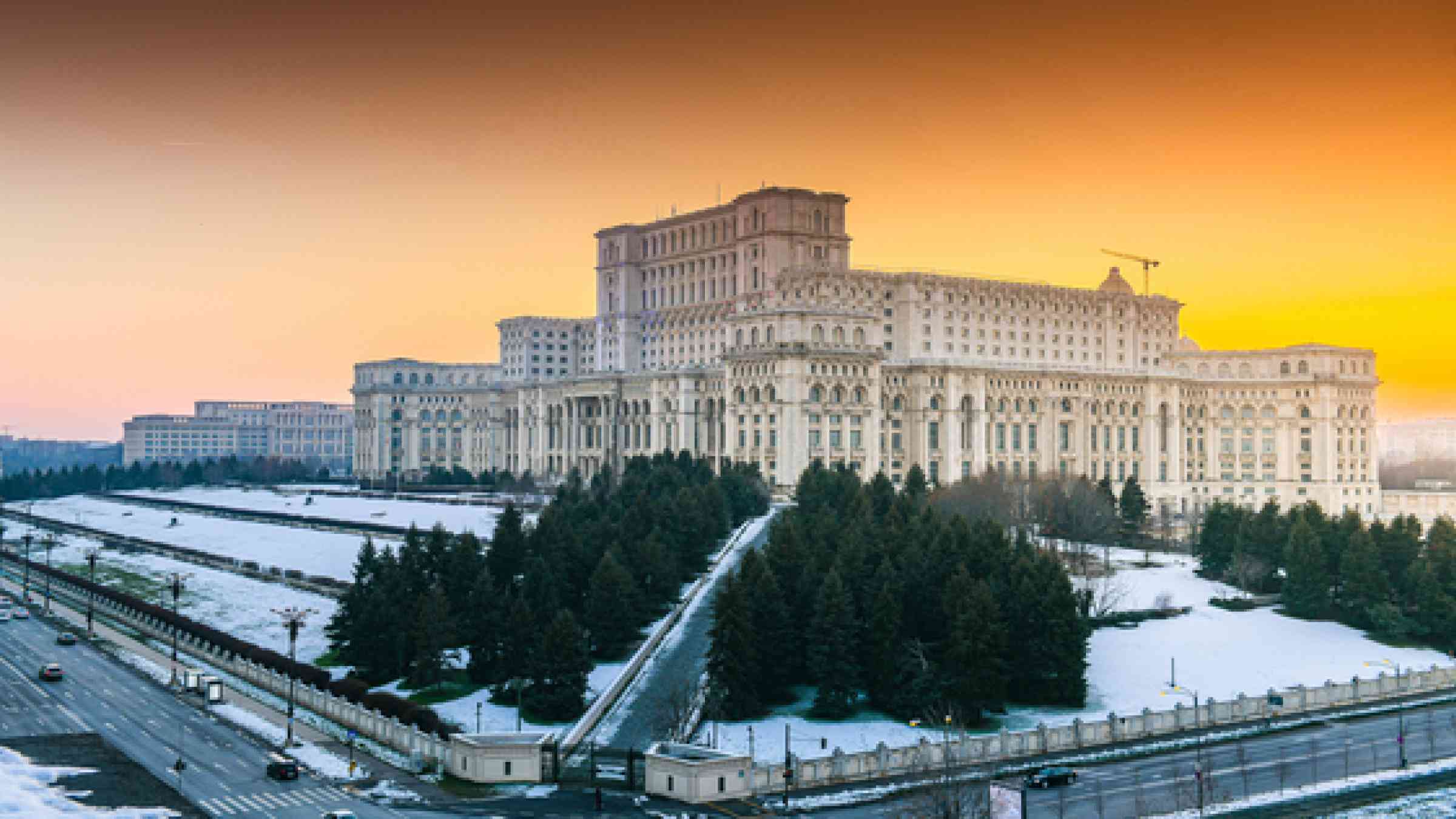European civil protection leaders set to share expertise on disaster risk communication in Bucharest

BUCHAREST, 21 February – Risk communication that is trusted, accurate, simple, and reaches everyone at-risk is critical to saving lives and protecting livelihoods. Experience with COVID-19 and other disasters shows that - to build societal resilience - risk information must be understandable and accessible to all.
This and other lessons are set to be discussed in Bucharest this week at a regional policy event on the theme of building societal resilience through effective risk communication and best-practice approaches to risk communication. The event brings together leaders and representatives of civil protection authorities from more than 10 countries, the European Commission, the Council of Europe, the media, civil society groups, and other experts.
Held from February 23 – 24 at the Palace of the Parliament in Bucharest, the event, which is part of a series of action-oriented dialogues to advance the regional roadmap for disaster risk reduction, focuses on ‘Understanding and communicating existing and future risks: Ensuring evidence-based communication’.
Building on their diverse experiences, delegates will focus their discussions on combating mis– and disinformation and look at strategies to help youth better identify and use information about disaster risk.
Discussions will be wide-ranging, covering everything from practical recommendations on building community and youth resilience through disaster risk reduction education programmes.
Delegates will also seek to answer key questions on translating risk information into behavioural change as well as accessibility and inclusion strategies for children and youth in disaster risk reduction.
By the end of the two-day event, delegates aim to share a series of recommendations on understanding and communicating existing and future disaster risks with governments and national stakeholders.
This European Forum for Disaster Risk Reduction (EFDRR) Action Oriented Dialogue builds on the success of the 2021 working session, which examined countries’ experience of COVID-19. It concluded that effective risk communication requires a systemic approach to disaster risk management, involving continuous dialogue between scientists, policy makers and the public.
For more details on the agenda, format, and anticipated outcomes of the 2023 action-oriented dialogue in Bucharest, please visit: https://www.undrr.org/event/efdrr-roadmap-action-oriented-dialogue-understanding-and-communicating-existing-and-future
Background Information
About the EFDRR Roadmap 2021-2030
The EFDRR Roadmap 2021-2030 identifies four shared priority areas for achieving the priorities of the Sendai Framework for Disaster Risk Reduction 2015-2030. The four shared priorities include 16 common action areas for development and investment, along with five enabling approaches. The Roadmap builds on consultation with European and Central Asian countries, the review of progress in implementing the Roadmap 2015-2020, and lessons learned from the Covid-19 pandemic response and recovery. The Roadmap is also informed by the Global Platform 2019 and the guiding principles for the Global Platform 2022.
Find out more here.
About the EFDRR Action-oriented Dialogues
The EFDRR Roadmap action-oriented dialogues are a series of multilateral thematic dialogues led by governments, in partnership with UNDRR, aimed at sharing experiences and developing adapted policies and actions to address pressing disaster risk reduction-related issues, and to enhance transboundary cooperation to accelerate the implementation of the Sendai Framework for Disaster Risk Reduction 2015-2030.
About the European Forum for Disaster Risk Reduction (EFDRR)
The European Forum for Disaster Risk Reduction (EFDRR) is a regional platform for Europe and Central Asia comprising 55 countries. These countries have different risk profiles and vary in their approaches to disaster and climate-driven risk reduction implementation, be it policies, strategies, laws, investments, levels of preparedness, collaborative arrangements, or partnership modalities. The Sendai Framework for Disaster Risk Reduction 2015–2030 provides an opportunity for countries to adopt a concise, focused, forward-looking, inclusive, and action-oriented national framework for disaster risk reduction implementation at country level, including modalities of cooperation based on commitments. The Sendai Framework recognizes the role of regional platforms for disaster risk reduction in guiding and supporting national and local actions, including through regional DRR frameworks and strategies.
For more information visit: https://efdrr.undrr.org/
Contacts
For more information, please contact:
David Baker, Associate Programme Management Officer, Regional Office for Europe & Central Asia, United Nations Office for Disaster Risk Reduction: david.baker@un.org